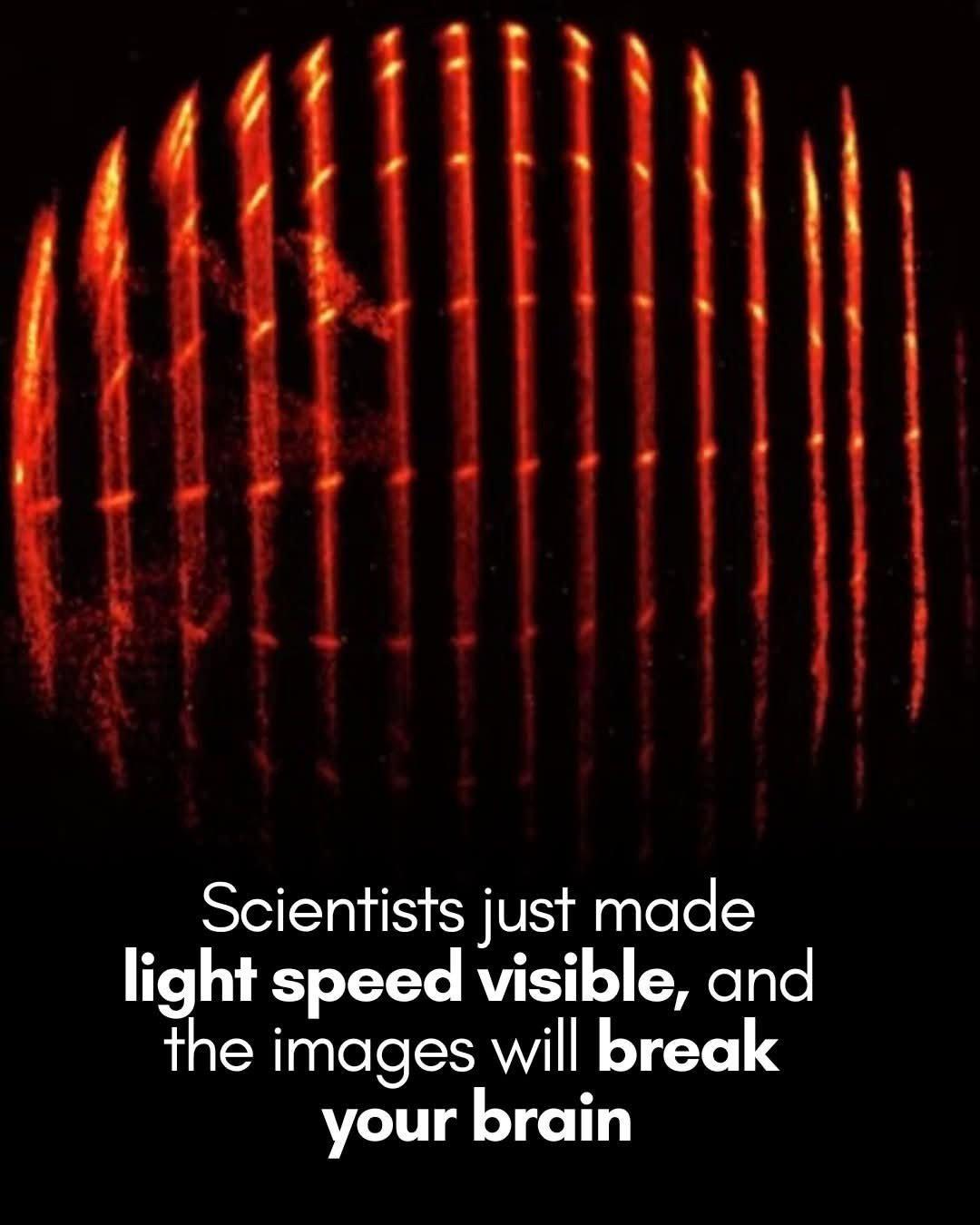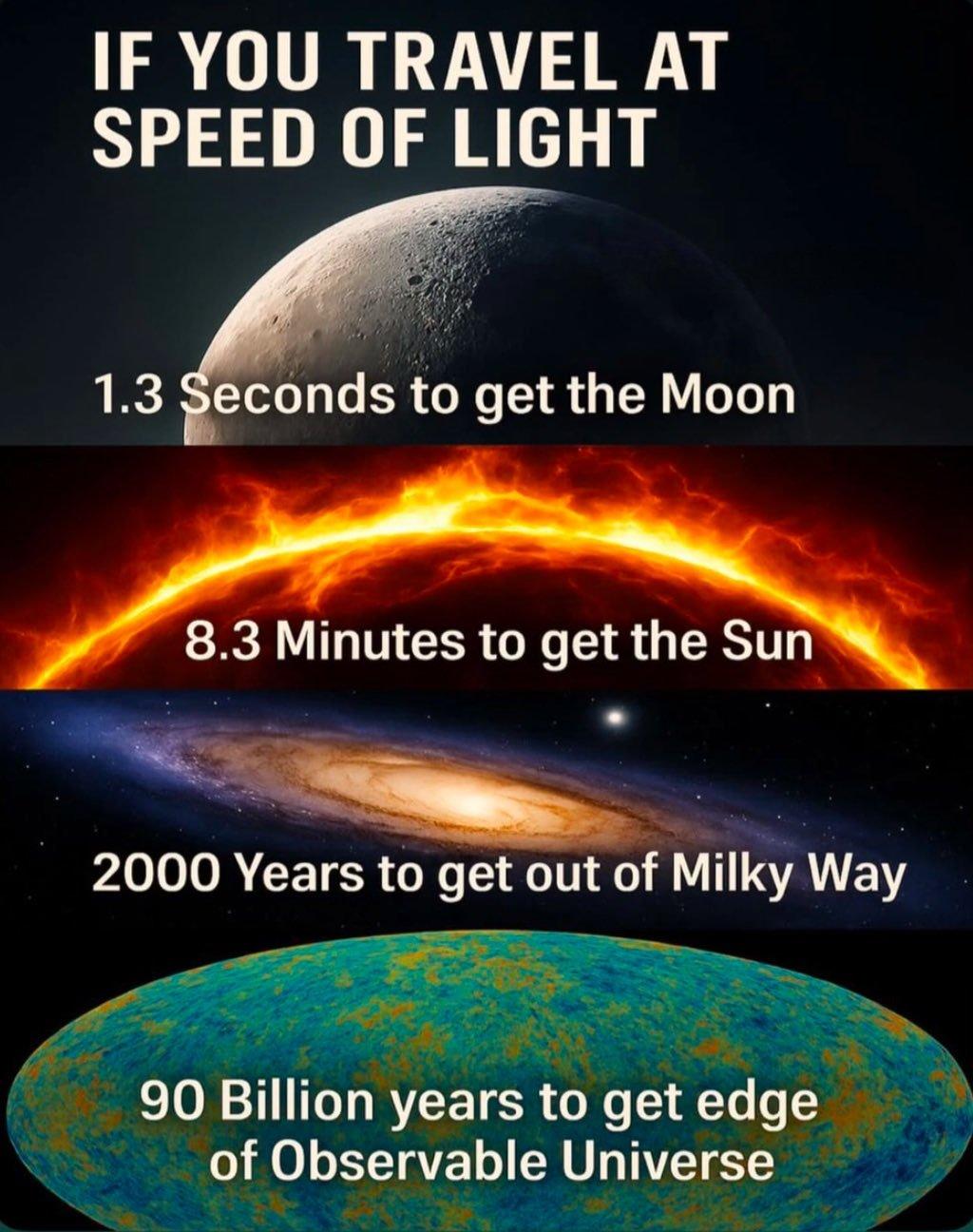Scientists just made light-speed visible!
And the images are something out of science fiction.For the first time, scientists have visually captured what an object would look like moving at the speed of light—turning a 100-year-old theory into stunning, real-world images.
In a groundbreaking study, researchers at the Vienna Center for Quantum Science and Technology recreated the Terrell-Penrose effect, a phenomenon of special relativity that predicts how objects appear distorted—not compressed, but rotated—when moving at lightspeed.
Using ultra-fast lasers and a high-speed photography setup, the team mimicked the visual experience by slicing and stitching light reflections into a composite, effectively slowing down the speed of light to just 2 meters per second.
This slicing technique—akin to a hyper-precise panoramic photo—allowed scientists to simulate how light from different parts of a fast-moving object reaches a camera at different times. The result: images of cubes appearing twisted and spheres whose poles shift positions. This experiment not only visualizes a concept once confined to equations and thought experiments but also opens new pathways for exploring the effects of relativity in a lab setting. It’s a vivid reminder that even light, when slowed and reassembled, can reshape our perception of the universe.
#light #speedOfLight #science #scrolllink
And the images are something out of science fiction.For the first time, scientists have visually captured what an object would look like moving at the speed of light—turning a 100-year-old theory into stunning, real-world images.
In a groundbreaking study, researchers at the Vienna Center for Quantum Science and Technology recreated the Terrell-Penrose effect, a phenomenon of special relativity that predicts how objects appear distorted—not compressed, but rotated—when moving at lightspeed.
Using ultra-fast lasers and a high-speed photography setup, the team mimicked the visual experience by slicing and stitching light reflections into a composite, effectively slowing down the speed of light to just 2 meters per second.
This slicing technique—akin to a hyper-precise panoramic photo—allowed scientists to simulate how light from different parts of a fast-moving object reaches a camera at different times. The result: images of cubes appearing twisted and spheres whose poles shift positions. This experiment not only visualizes a concept once confined to equations and thought experiments but also opens new pathways for exploring the effects of relativity in a lab setting. It’s a vivid reminder that even light, when slowed and reassembled, can reshape our perception of the universe.
#light #speedOfLight #science #scrolllink
🚨 Scientists just made light-speed visible!
And the images are something out of science fiction.For the first time, scientists have visually captured what an object would look like moving at the speed of light—turning a 100-year-old theory into stunning, real-world images.
In a groundbreaking study, researchers at the Vienna Center for Quantum Science and Technology recreated the Terrell-Penrose effect, a phenomenon of special relativity that predicts how objects appear distorted—not compressed, but rotated—when moving at lightspeed.
Using ultra-fast lasers and a high-speed photography setup, the team mimicked the visual experience by slicing and stitching light reflections into a composite, effectively slowing down the speed of light to just 2 meters per second.
This slicing technique—akin to a hyper-precise panoramic photo—allowed scientists to simulate how light from different parts of a fast-moving object reaches a camera at different times. The result: images of cubes appearing twisted and spheres whose poles shift positions. This experiment not only visualizes a concept once confined to equations and thought experiments but also opens new pathways for exploring the effects of relativity in a lab setting. It’s a vivid reminder that even light, when slowed and reassembled, can reshape our perception of the universe.
#light #speedOfLight #science #scrolllink
0 التعليقات
0 المشاركات
1كيلو بايت مشاهدة
0 معاينة







